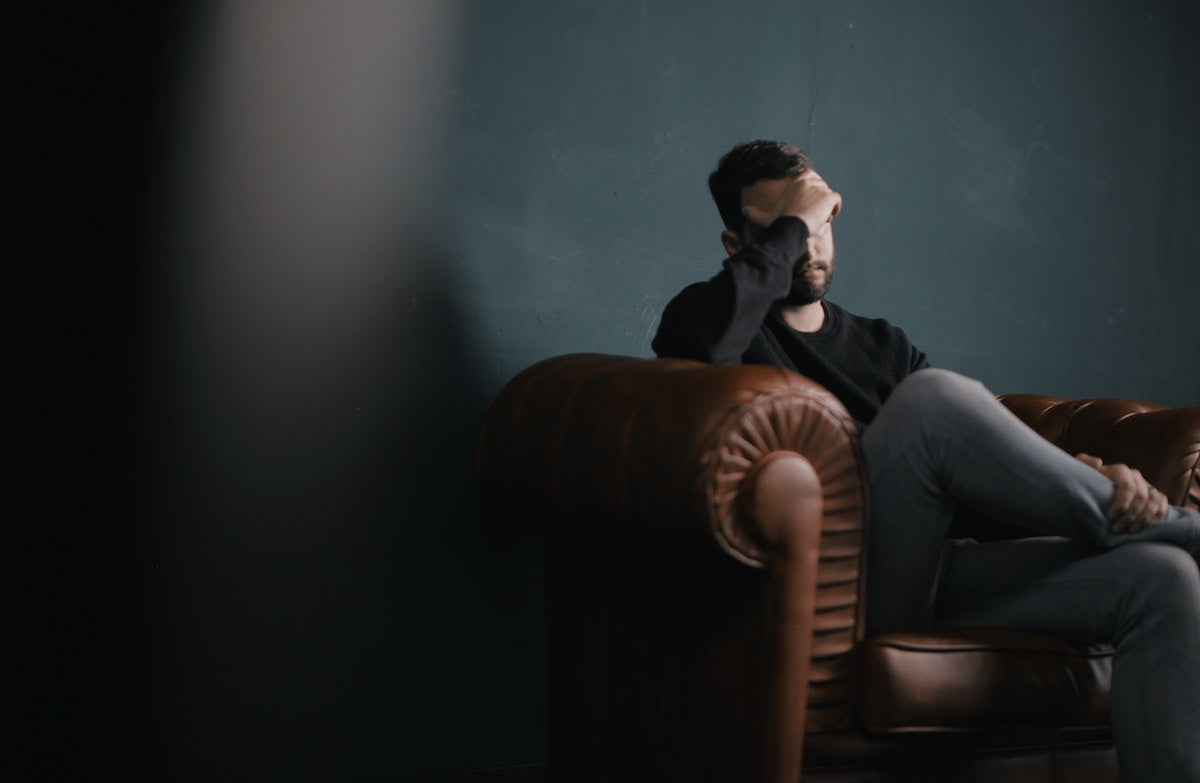We Need To Talk About Men’s Anxiety

Your symptoms may look different, but the struggle is real.
2 MINUTE READ


Your symptoms may look different, but the struggle is real.
2 MINUTE READ

With all that we have in common, men and women are also different, and both biological and social factors can make anxiety symptoms in men harder to identify.
Men may often feel that they need to project an image of self-reliance, calm control, and independence throughout life. While some men are comfortable with expressing emotions, others find it more difficult to open up. Different people embrace varying coping styles regardless of gender, but concealing emotional distress can act as a barrier to getting the support you deserve when you need it most.
If you’re struggling with anxiety, you’re not alone. On average, about one in five men experience anxiety at some point in life, but men’s anxiety is often less likely to get diagnosed than women’s. Since men are generally slower to seek professional help when a crisis hits, many go it alone instead of seeking support.
While anxiety can look similar in both men and women, some men’s anxiety symptoms get missed since they can manifest as anger, relationship troubles, or addictive behaviors instead of panic attacks or obvious worry. Symptoms of anxiety in men can include:
There are many ways to curb anxiety and develop effective coping strategies, but you probably need outside support as well. Aim to address your diet and sleeping habits first––try to limit or avoid alcohol and recreational drugs as these can make symptoms worse.
Setting up a structure to your day, eating well, and getting regular sleep is your baseline for self-care. Meditation, exercise, yoga, and getting active in ways you enjoy can amplify your quality of life and help you feel more emotionally regulated.
There are different types of anxiety disorders, such as generalized anxiety and post-traumatic stress disorder (PTSD), so check in with a mental health professional if your symptoms persist.
The longer you delay treatment, the worse your anxiety symptoms may become, and there’s no point in struggling alone. A good therapist can help you identify the issues you’re facing while guiding you towards anxiety management techniques that work for you.
There are multiple ways to develop a strategy for dealing with anxiety. From proven natural anxiety treatments to deep breathing and anxiety medications, your way forward will be unique to you. By focusing on better health strategies and reaching out for help, you can carve out a path that offers newfound joy instead of daily dread. While you still might feel anxious sometimes, knowing that you can manage your symptoms with greater insight and purpose can help you cultivate the relief that you need step by step.

We’ve packaged up your ‘deserted island’ essentials into a must-have discounted personal grooming kit.
